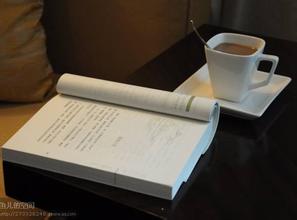Foreign coffee brand China Enclosure Silicon Valley newcomer Wheelys wants to challenge Starbucks
Compared with the global average growth rate of 2%, China's coffee consumption is growing in double digits, and the huge market prospect has attracted the covet of many foreign brands.
Wheelys, a coffee brand from Sweden with the Silicon Valley incubator label, has announced plans to expand in the domestic market and intends to set up an industrial fund to promote the development of urban operators in order to accelerate its layout in China, local media reported. Moreover, Wheelys hopes to take advantage of the new model to "challenge" traditional coffee chains such as Starbucks.
So far, foreign coffee brands in the Chinese market include Starbucks in the United States, Costa in the United Kingdom and Caffebene in South Korea. Industry insiders pointed out that the entry of new brands is temporarily difficult to shake the market share of existing brands and the pattern of the entire coffee market. However, five years later, as China's coffee market enters a period of mature development, the industry is likely to reshuffle.
Wheelys coffee mobile car
The newcomer intends to challenge the traditional model.
It is understood that the Wheelys brand was founded in 2014 and currently has operations in 65 countries and regions around the world. Unlike the traditional store sales model, Wheelys operates with the help of smart mobile coffee carts. Consumers can use the mobile phone APP to find the nearest coffee car, make reservations, place orders and other functions, and the price per cup is slightly lower than that of chains such as Starbucks and Costa.
According to public data, the expansion model of the Wheelys brand in other parts of the world is "join as soon as you buy a car". However, it is said that it will adopt the mode of division of labor and cooperation with urban operators in the Chinese market. Popularly speaking, it is similar to regional alliance.
Wheelys said it intends to challenge the traditional model of coffee chains such as Starbucks in the Chinese market. Obviously, this statement has attracted a lot of attention.
Many traditional chain coffee brands have been developed in the Chinese market for many years, and their operation results are beautiful. Take Starbucks as an example. Starbucks accounted for 73.3% of the Chinese chain coffee market in 2015, according to Euromonitor. Where is the strength of the Wheelys challenge?
Bai Xiaofan, CEO of Wheelys China, told the Daily Business News that the brand took the lead in recruiting operators in Shanghai in August. Now, it has decided to speed up the steps to open up the national market. It is planned that Wheelys will expand at least 30 "stores" (smart coffee cars) by the end of 2016 and 200 operators across the country in the next five years.
Bai Xiaofan said that Wheelys is not to face direct competition with Starbucks and other companies, the reason why the overall layout in China began to accelerate, is to see the scale of this field. Wang Weixian, founder of Wheelys China Industrial Fund, believes that the size of China's coffee market may reach trillions in the future.
"now coffee is growing very fast, and Starbucks is still racing the enclosure, which is an opportunity." Bai Xiaofan said that compared with Starbucks, its image is younger, and the cost is more advantageous after saving store rent. In the future, there will be coffee at all levels in China, and there will be no conflict.
However, many industry insiders also said that brands that adopt the new model to enter the Chinese market still face many challenges. Zhu Danpeng, a commentator of the Chinese food industry, pointed out to reporters that it is difficult to determine whether Wheelys can successfully enter China. "similar to the regional joining model, the risk is higher, if it is not the full direct operation model, the quality and service is difficult to achieve standardization. In addition, it belongs to light asset operation, and it is necessary to have a very perfect system and process. As long as it involves joining, the effectiveness of the process will be discounted.
It is believed that the next 10 years will be an explosive period.
At present, China's position in the industry is somewhat awkward, whether it is coffee consumption or coffee cultivation.
A reporter from the Daily Business News has previously reported that as a producing area, China's coffee bean production is limited, accounting for less than 1% of the world's coffee consumption. Jia Ben, a senior coffee industry analyst at Kunming Fumin Import and Export Co., Ltd., pointed out that China's coffee bean consumption may not be as optimistic as some institutions predicted (some organizations predicted that China's coffee bean demand in 2015 would reach 180000 tons). According to its estimates, the annual consumption of the domestic coffee market is only about 80,000 tons.
However, there is no doubt that the consumption potential of China's coffee market is huge. The report on Investment Analysis and Prospect of China's Coffee Industry from 2016 to 2020 released by CIC consultants said that coffee is not popular in China, but this populous country with a small coffee market is creating the fastest growth in the world. Coffee consumption is growing at an average rate of more than 25% a year. According to a separate report written by Guanyanxia, according to a growth rate of more than 15% a year alone, China's coffee market will have 300 billion yuan by 2020.
"the next 10 years will be an explosive period for the Chinese coffee market. After coming in, we will make the cake bigger together." Zhu Danpeng told reporters that in the next five years, because there is room for development in the market, the sales of many coffee brands will increase. However, five years later, the industry has gradually developed and matured and may enter the reshuffle stage.
Jia Ben pointed out that if the era of ordinary people drinking a cup of coffee with only a few yuan as drinking tea comes, it will mean that China has really become a big coffee consumer.

Important Notice :
前街咖啡 FrontStreet Coffee has moved to new addredd:
FrontStreet Coffee Address: 315,Donghua East Road,GuangZhou
Tel:020 38364473
- Prev

The 11th Coffee and Food Culture week in Zhengda Plaza opens magnificently.
15:00 Beijing time, with the world barista competition China trials Shanghai Division (CBC) live music sounded, after a series of busy preparation, organization and construction work, the 11th Coffee Food Culture week sponsored by HOTELEX officially kicked off today on Golden Avenue, 3 / F, Zhengda Plaza, Shanghai. (applause here) although today is a working day
- Next

The winner of the Pacific Coffee 2016 barista contest
With the mellow coffee flavor of Didi, the Pacific Coffee barista Competition kicked off in Vientiane City, Shenzhen. 22 contestants who stood out from the qualifying competition of nearly 500 Pacific Coffee stores around the world took part in the competition. In the three-day schedule, after a fierce competition round by round, Huang Guanfeng from Pacific Coffee South China won the championship.
Related
- Can I make coffee a second time in an Italian hand-brewed mocha pot? Why can't coffee be brewed several times like tea leaves?
- Hand-brewed coffee flows with a knife and a tornado. How to brew it? What is the proportion of grinding water and water temperature divided into?
- What is the difference between Indonesian Sumatra Mantinin coffee and gold Mantinin? How to distinguish between real and fake golden Mantelin coffee?
- What does bypass mean in coffee? Why can hand-brewed coffee and water make it better?
- Unexpected! Ruixing Telunsu lattes use a smoothie machine to foam milk?!
- % Arabia's first store in Henan opens into the village?! Netizen: Thought it was P's
- Does an authentic standard mocha coffee recipe use chocolate sauce or powder? Mocha Latte/Dirty Coffee/Salty Mocha Coffee Recipe Share!
- What is the difference between Vietnam egg coffee and Norway egg coffee? Hand-brewed single product coffee filter paper filter cloth filter flat solution!
- What is the difference between sun-cured and honey-treated coffee? What are the differences in the flavor characteristics of sun-honey coffee?
- How to make Italian latte! How much milk does a standard latte use/what should the ratio of coffee to milk be?

